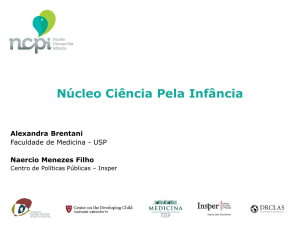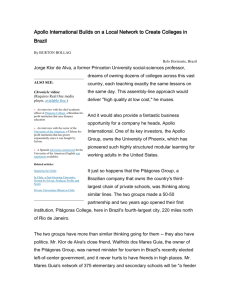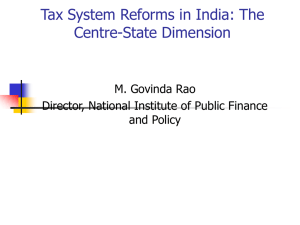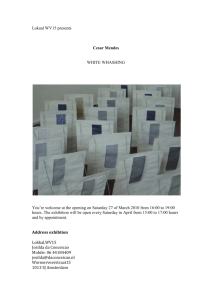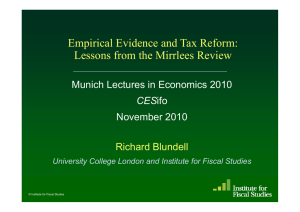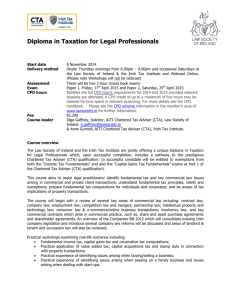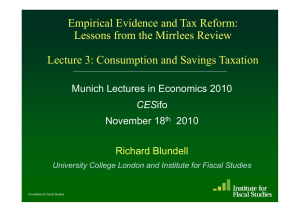VALUE ADDED TAXATION IN DEVELOPING COUNTRIES
advertisement
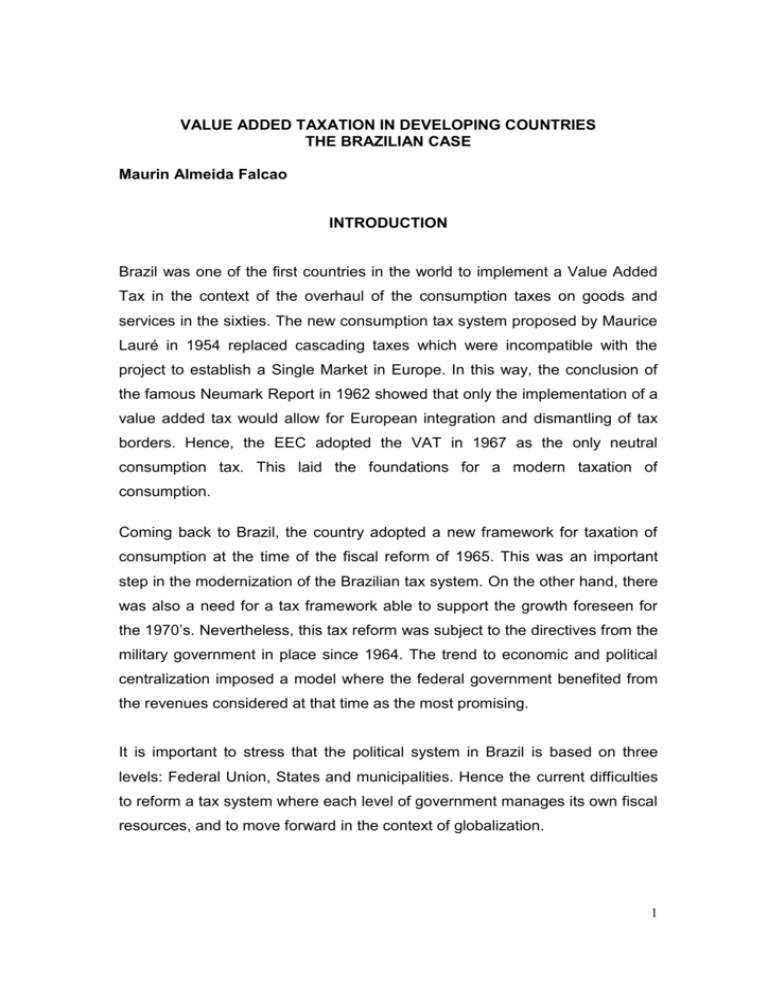
VALUE ADDED TAXATION IN DEVELOPING COUNTRIES THE BRAZILIAN CASE Maurin Almeida Falcao INTRODUCTION Brazil was one of the first countries in the world to implement a Value Added Tax in the context of the overhaul of the consumption taxes on goods and services in the sixties. The new consumption tax system proposed by Maurice Lauré in 1954 replaced cascading taxes which were incompatible with the project to establish a Single Market in Europe. In this way, the conclusion of the famous Neumark Report in 1962 showed that only the implementation of a value added tax would allow for European integration and dismantling of tax borders. Hence, the EEC adopted the VAT in 1967 as the only neutral consumption tax. This laid the foundations for a modern taxation of consumption. Coming back to Brazil, the country adopted a new framework for taxation of consumption at the time of the fiscal reform of 1965. This was an important step in the modernization of the Brazilian tax system. On the other hand, there was also a need for a tax framework able to support the growth foreseen for the 1970’s. Nevertheless, this tax reform was subject to the directives from the military government in place since 1964. The trend to economic and political centralization imposed a model where the federal government benefited from the revenues considered at that time as the most promising. It is important to stress that the political system in Brazil is based on three levels: Federal Union, States and municipalities. Hence the current difficulties to reform a tax system where each level of government manages its own fiscal resources, and to move forward in the context of globalization. 1 To explain the Brazilian experience in implementing a VAT system, according to the widespread model, this document will comment on political and economic aspects of the distortions created by the fiscal reform of 1965. IMPLEMENTING A VALUE ADDED TAX IN BRAZIL As stressed above, Brazil implemented the VAT at the time of the 1965 tax reform. The political and economic context was dominated by the need to ensure both local autonomy and centralization of the main powers in the hands of a central military government. Therefore, services were taken out of the scope of VAT and a Tax on Services –ST- was established at the municipality level. At the State level a tax on goods –GT- was created (which has the characteristics of VAT and includes since 1988 the telecommunication and transport services). In order to also allow the Federal Union to benefit from the excellent perspectives offered by consumption taxation, a wholesale tax was levied on industrial products. This system replaced the old cascading tax. In parallel, these changes reflected the political needs in a difficult context. This “fiscal federalism” was adapted to the demands of the new military government. Despite the adoption by Brazil of a widespread model, it differed to a certain extent from the one proposed by Maurice Lauré. Once those reforms were implemented, the Brazilian Government was confronted by new international challenges. As for many developing countries, the problems caused by an increasing public debt raised the need for new reforms of the tax system faced with the difficult overall economic situation. But the consumption tax system complexity is due to the reforms implemented in the 1970’s. Due to this sharing of tax powers, the federal government doesn’t have useful tools to manage its tax policy. So, when discussing tax policy or international 2 negotiations for tax harmonization, the analysis should take into account the full span of taxes. This question also refers to other important points. In the 1960’s many surveys on public finance and in particular on taxation, shared the common view that in the next few years there would be a trend in favor of income taxation rather than consumption taxation in developing countries. Maybe those analyses influenced the managers in charge of the Brazilian tax reform. Hence the Federal Union took the responsibility for income taxation management. Anyway, the 1970’s were the turning point for consumption taxes. According to studies made by international organizations, including the Organisation for Economic Co-operation and Development (OECD), VAT experienced an unexpected growth, even among developed countries. From this point it’s easy to assess the difficulties of the Brazilian government. The sharing of taxing powers on consumption generated complex situations for the Federal Union. Policy tools are missing to facilitate negotiating international agreements on free movement of goods and services placed under the responsibility of, respectively, States and municipalities. In addition, the share of revenues from consumption taxes is rising in the total revenue. As a consequence, taking account of its choice to keep only revenue taxation under its authority, the Brazilian government loosened the freedom of action which would be necessary to take any major tax policy decisions. As a conclusion, the contribution of VAT to the modernization of the Brazilian tax system and its importance in the whole of tax revenues should be recognized. It is now crucial to consider reviewing the sharing of tax powers in the current economic, political and social reality of the country and its relationships with the rest of the world. 3


